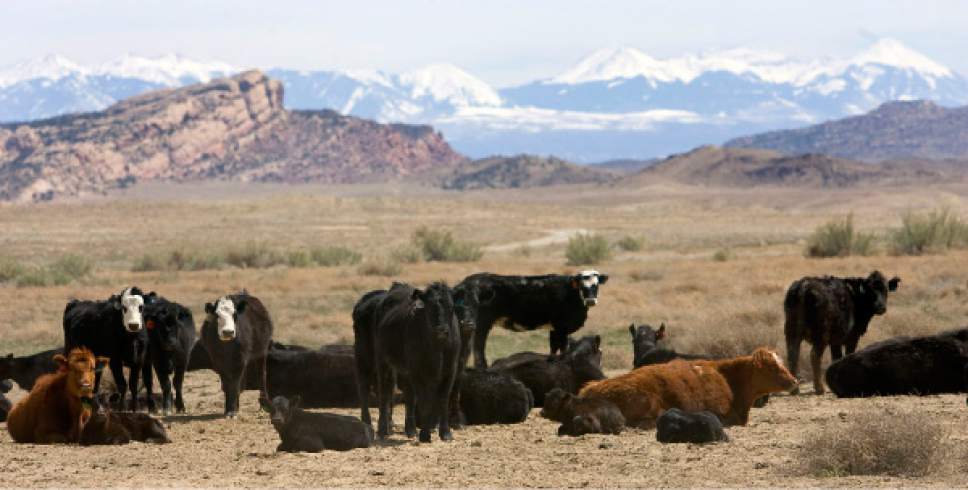This is an archived article that was published on sltrib.com in 2017, and information in the article may be outdated. It is provided only for personal research purposes and may not be reprinted.
There were six times between 2010 and 2015 that animals in a state-inspected slaughterhouse in Utah suffered inhumane treatment, requiring a "noncompliance report" to be filed with the federal government.
Depending on which group interprets the data, that minimal number of violations could mean Utah has "good inspectors" or it could be due to "weak oversight."
The nonprofit Animal Welfare Institute in Washington, D.C., cites the latter, saying Utah lacks proper enforcement of federal animal-treatment laws. In a report released earlier this month, the group gave the state a D grade for its animal-handling procedures.
"Our investigation found that Utah's program had a low rate of enforcement action" when compared with other federal and state meat-inspection facilities, said Dena Jones, AWI's Farm Animal program director and the author of the "Humane Slaughter Update." Unlike many other states, Utah "also issued no suspensions during the time period analyzed."
Officials with the Utah Department of Agriculture and Food (UDAF), which oversees the state-inspected slaughterhouses, contend the small number of violations shows Utah has a humane handling program that is working well.
Instead of a near-failing grade, "we deserve an A," said Noel McSpadden, the UDAF's meat and poultry inspection program manager. "The report assumes that the fewer [noncompliance] reports means you're not doing your job. That's frustrating to have an organization a thousand miles away make accusations when they haven't stepped foot in Utah and actually seen what we do."
Most slaughterhouses across the country and in Utah are federally inspected, but 27 states — including Utah — also offer meat-inspection programs. The state-run programs are required to enforce standards equal to or greater than federal law, McSpadden said, adding that annual federal audits, available online, show the UDAF has been in compliance with federal humane-handling procedures for many years.
In Utah, there are 56 federally inspected and 10 state-inspected slaughterhouses. Meat in federally inspected facilities can be sold between states, while meat in state-inspected facilities can be sold only within the state.
Utah slaughtered more than 21,000 animals between July 2012 and December 2014, he said; most were cattle, but hogs, goats, lamb, elk, deer and occasionally bison also were processed. Inspectors follow a 32-point inspection process on each animal headed to slaughter, he said. They look at the health of the animal for food-safety reasons but also for humane-handling issues.
That Utah processes a small number of animals compared with other states was taken into account when writing the report, Jones said.
Under the federal Humane Methods of Slaughter Act, animals being taken to slaughter cannot be excessively prodded or overcrowded; cannot be held overnight without food; must have accessible water; and cannot be slaughtered while still conscious of pain.
Of the six noncompliance reports issued in Utah between 2010 and 2015, one was considered egregious. It occurred in February 2014, when an attempt to stun a lamb in the "knock box" was not effective and required a second attempt.
Jones said the noncompliance report that was filed "lacks details" and "more serious actions should have been taken."
The other five Utah violations were less serious: Three involved lack of water, either because a pipe had broken, the trough had not been filled or the water had frozen; and two involved damage to holding pens — either protruding wood or metal — that could have caused harm to animals.
It is not the first time that state-inspection practices have been criticized. In 2015, the federal government took over meat-inspection duties at a massive processing plant in Draper, a facility the state had inspected for years.
State veterinarian Barry Pittman said the humane handling of livestock at slaughter facilities is a high priority for state inspectors as well as plant operators.
"We want these small operators to have a good plant," he said. "If they don't, they would be suspended, and they don't want to be in a position where they are shut down."



